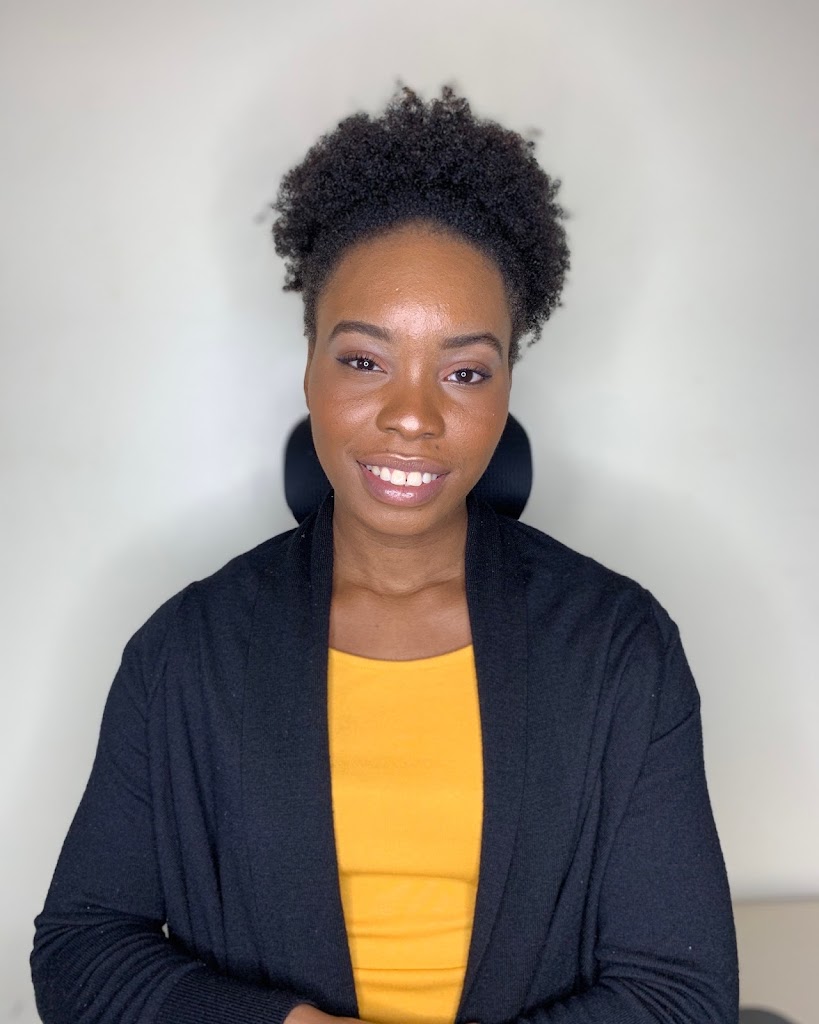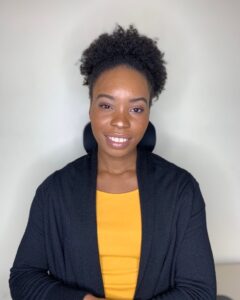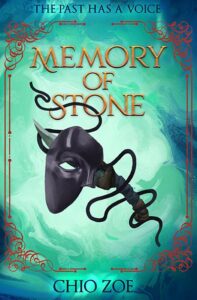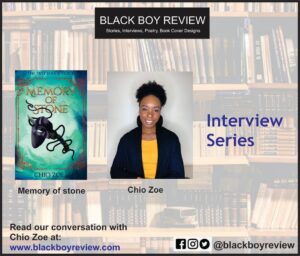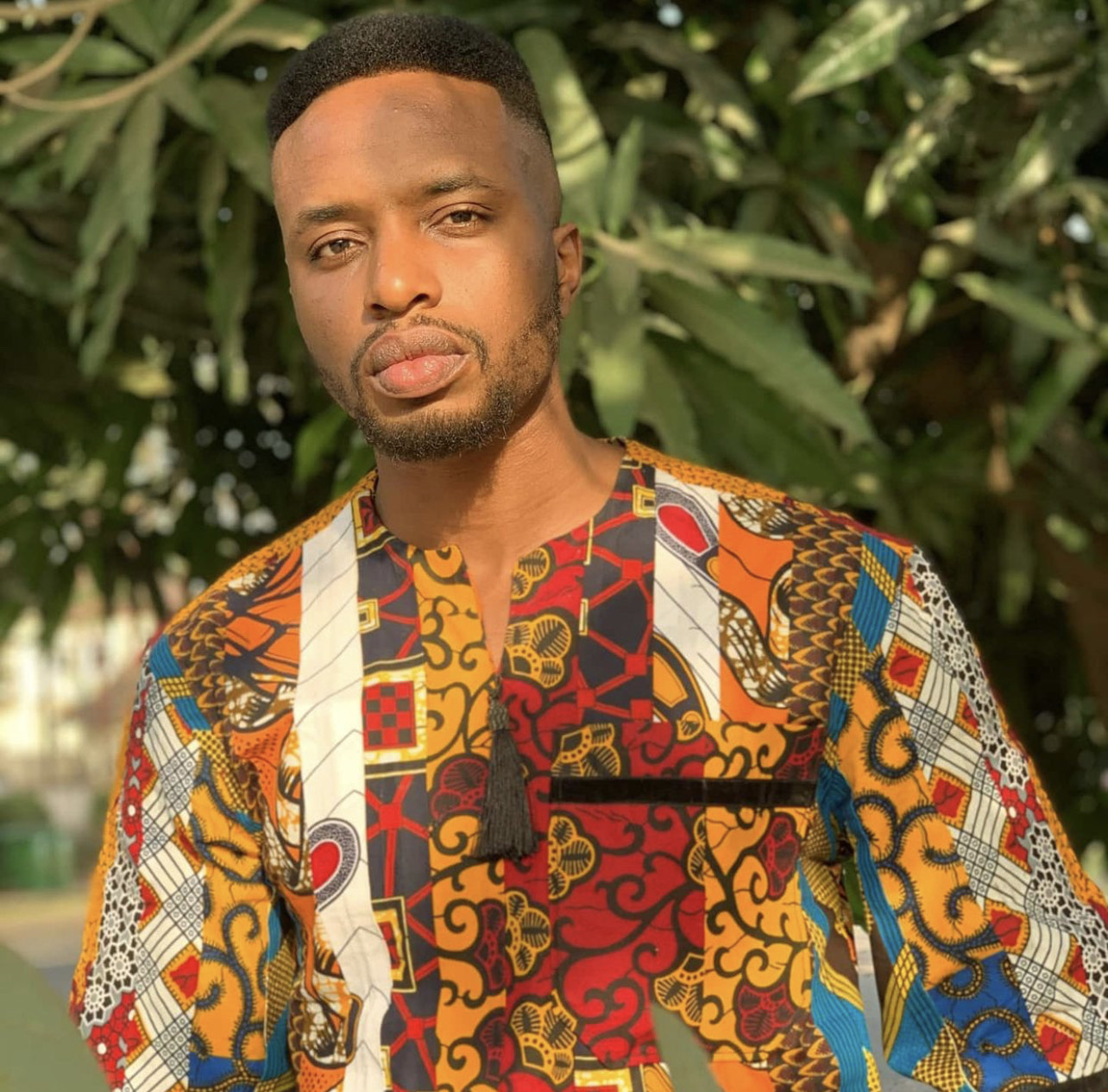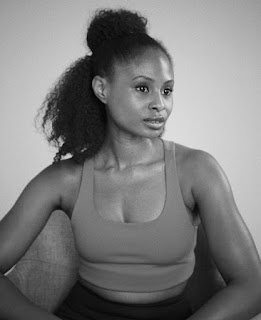Chio Zoe is a fantasy writer and the author of Memory of Stone – with more to come.
She writes a broad array of fantasy inspired by multiple cultures and folklore across the world.
Chio was born and educated in Nigeria. Her free time in secondary school – when she wasn’t training as an athlete – was used to write stories in different genres such as children’s horror, paranormal, romance, which she shared with classmates. Her unpublished children’s horror gained the interest of a publishing house, which led her on a path to writing professionally.
You can often find her bent over her laptop working on her books, or with her nose in a sketchpad coming up with new clothing designs for her fashion line.
She has a YouTube channel Chio Zoe writes dedicated to teaching writers, reviewing books, and promoting the reading culture in Nigeria.
Hello Chio.
You recently published a young-adult fantasy novel, Memory of Stone, and from the blurb, one can tell that it is the explorationof the lives two major characters, and the adventures they undertake. Of course, it would be difficult to say much more than this without giving away spoilers, but what essential part would you like to add that my summary misses?
I would like to say that the story touches on different themes like loyalty, honour and standing up for what you believe in, butsome of the most explored themes are friendship and fate – how things that seem to be just a series of events can be a path to something more.
Of course, you’d have to read the book to know what I’m talking about!
In one of your vlogs (yes, I checked), you mentioned that writing Memory of Stone consumed a lot of your time and attention. This definitely does not come as a surprise, as writing a novel seems to be quite a big deal. But how exactly would you describe your mood while you wrote, and what does your creative process look like?
I’m glad to hear you checked out my Youtube channel. As for my mood while I wrote, I would say that I get very invested in my characters, so my mood often reflects theirs. When they are happy I’m happy, when they are anxious I’m anxious. I kind of lose myself in my work and become somewhat eccentric.
My creative process starts with a character, then I spend time developing a life for that character before I go into research; and that goes hand in hand with creating different characters and essential elements for the plot. That way, when I start writing, I don’t need to come up for air.
Although there appears to be a large number of readers who are open to the idea of fantasy novels in this part of the world, the number of writers in Nigeria who actually write fantasy fiction is sadly disproportionate, in my opinion. Do you agree with this? If yes, what do you consider to be the cause of this?
Not entirely. At some point there weren’t that many readers interested in fantasy in this part of the world. In truth there still aren’t that many – but the community is growing. Pair that with the fact that a lot of writers have spent time teaching the drowned out history of our land, there just hasn’t been room for fantasy. But as time goes on and we realise we can tell our history and/or inspire readers through other types of books, more writers will write fantasy.
When we speak of genre in literature, we speak of a myriad of possibilities. Even with the spotlight on speculative fiction, we find that there still exists a large number of alternate paths that a writer (or even a reader) can take. What drew you to YA fantasy? If you were to pick a different genre to serve as a structural basis for your stories, which would it be?
I was drawn to YA fantasy after reading a book by Leigh Bardugo called Six of Crows, even though I enjoyed reading and writing already. It really can take just one book to know what you want to do. It’s hard to pick a genre that isn’t fantasy – even as I’ve written books in others – but I’d choose Romance as it is broad enough to include other themes. I wrote mostly romance growing up, actually.
For a good number of readers, fantasy is a form of escapism. The readers often find themselves immersed in a fictional world, seemingly different from the one where they and their problems reside. With the case of many Nigerians, there seems to be a lot to escape from—what sort of escape does your work provide your readers?
I believe that just experiencing a world that doesn’t exist goes a long way in making people happy. My work provides a different experience, an opportunity to root for someone else to succeed, and hope – hope that they will be able to overcome their own problems and succeed, too. When you see a character you like being put through the wringer and still come out safe and stronger, you begin to believe that maybe you can too. My work gives readers time to relax, recharge and come out with a fresh positive perspective.
And even if all they get from it is a moment’s happiness, then I’m glad to have made them happy, if only just a little bit.
Contemporary literature, both by Nigerian and foreign writers, now seems to be preoccupied with a lot of politically sensitive material. Many writers agree that literature should align with the political climate of the writer’s country, or even the world at large. Some go as far to claim that literature should provide a kind of moral compass for readers, giving them an opportunity to be better. What do you think of this? How does the current political situation reflect in your work, if it does?
I don’t believe that there should be a rule about our works reflecting the political climate. As much as we should care about what is happening around us, we should be able to write what we want. I do believe we should write with a moral compass, but I would not go as far as to say we and our works are a moral compass because we are human at the end of the day and readers will read and learn what they want to. This is why I do not seek to reflect current political situations in my work, but to be respectful even when writing from the influence of my principles and beliefs.
From the blurb of your novel, one infers— although they may be wrong— that in your world building, you decided to create a space markedly different from the one of which you are a citizen. What do you think of the necessity of representation in fantasy novels— of the African continent, and of the black race?
I do believe that there is a necessity for representation of the African continent and of the black race especially as there has been lack of it for centuries, and even misrepresentation. It is a way to teach the young that they are just as important as any other race and to remind ourselves of what we are capable of.
But I also believe that as, not just Africans and the black race, but as people, we also deserve the right to tell any story we want to. Our books should be accepted in the world simply because they are good books, and not only viewed as “black stories”.
My earnest wish is that as we tell our stories or any type of story we want to, that the world will value them as good works of literature, not just as good black works of literature. And for this to come true, there must be value on the lives of African and black people, first and foremost.
Who or what inspires your writing?
My writing is inspired by life. It is inspired by both reality and fiction – people I meet, stories I hear and the experiences I have.
Who is your ideal reader?
Someone who just enjoys a good book.
Who are your favorite authors, and why?
Sadly – or not, depending on how you view it – I do not focus on the lives of authors whose stories I’ve enjoyed. I separate art from creator. So to select my favourite authors I’d have to select them from my experience reading their works. First is Chimamanda Adichie because her books taught me to have my own view point when I write. Then there’s Danielle Steele because reading her book ‘A Perfect Stranger’ was the moment I knew I wanted to be a professional writer. And then there’s Leigh Bardugo for her book ‘Six of Crows’ because that’s when I knew I wanted to be a fantasy writer. I have so many other writers I admire for their works, but these are the three that have been an influence in my life as a writer.
What would you say to a younger Nigerian writer who aspires to write fantasy fiction?
If you love it then go for it. No matter how daunting it might seem, the only guaranty that your work won’t get seen and enjoyed is if you never wrote it in the first place. I have so much I want to say, but I can’t put it all down here. But I have a Youtube video where I addressed this, so hopefully that will help.
What are readers to expect from Memory of Stone, and the direction of your future work? Should we anticipate a sequel?
When reading Memory of Stone, expect to be taken on an epic adventure. Experience the love, betrayal and loss the characters go through. Fly through beautiful cities and feel the wind in your hair. And when you come back, it will be with new friends.
I hope that my future works will move in a similar manner no matter the location, time period or race they are created with, and that there will be significant growth with each new book I write. I hope that through this, readers will experience something wonderful.
With that, I am happy to announce that a sequel to Memory of Stone is definite.
Thank you very much for your time, Chio.
